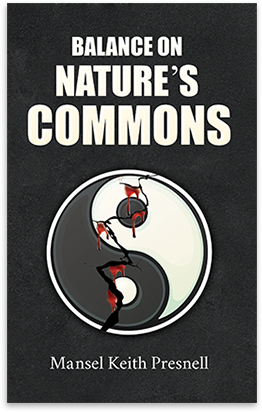
ADDRESSING ENVIRONMENTAL INSTABILITY - SOCIAL OPTIONS.
Part 4a
In 1950 an ounce of gold sold for around $40. At that time, the basic wage in Australia was about $2,000/annum, equivalent to 50 ounces of gold. Now the price of gold is touching $2000 an ounce. The basic wage is around $46,000/annum, equivalent to 23 ounces of gold. Using gold as a natural asset, the buying power of the average income in Australia over that period has depreciated by around 50 percent.The economic priority for humanity is to reverse that trend. It needs to rebalance the relationship between the private and the public sectors, by matching the private sector’s commercial currency with a public sector currency, that is based on an equivalent natural asset. A currency that cannot be devalued. One that restores the protection lost when governments abandoned the safeguard provided by the requirement for equivalent bullion reserves to match the token money in circulation. It would present resource-hungry companies with an account to pay based on the sustainable value of their operations, rather than any value society may attribute to a surrogate currency.
A public sector equivalent of the almighty dollar might be a measurable contribution to the advancement of community priorities. Time and skill spent on community endorsed activities, adjusted to reflect the value of that activity to the community could become a unit of credit (social credit?), issued in acknowledgement of that service. Advanced computer technologies would be needed to manage the accounts.
Individuals could use their time and skills to earn either money or social credits. For instance, a doctor of medicine could earn conventional money treating private patients, or community credits by volunteering their services to treat public patients.
The ability to access unearned remuneration by claiming exclusive ownership of natural resources has to stop. Nature is inalienable. Other than on paper, non-renewable natural resources such as land, water and clean air cannot be owned. That adjustment alone would counter the bulk of the corruption that currently hampers the operation of most major economies.
The next step would be to legislate so that the right to lease a parcel of land can only be acquired using social credits. Lease instruments that specify what the land can be used for, including covenants that ensure that the land’s environmental integrity is respected. Needing social credits to lease a parcel of land would eliminate speculative acquisition and unearned increments from rezoning land. Social credits would effectively be an I.O.U. issued by the local community acting as the banker.
Social housing has existed for centuries. Socially agreed access to the commons could be regulated in the same fashion. Improvements to servicing infrastructure or buildings are substantive investments and would be subject to the normal profit & loss market environment.To afford their own practise, the doctor would need a combination of community credits to lease the land, and conventional money to ‘value add’, that is to pay for any improvements on the land.
Post Views : 173